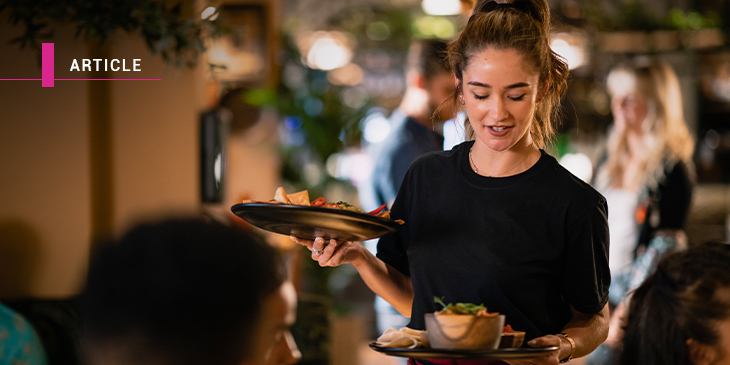
Why go for generic small business insurance when there’s one tailor-made for the hospitality sector? Whichever you choose will depend on the one that’s the best fit for your operations. This article will explain why an industry-specific policy may be right for you, so you can make the right decision based on your unique circumstances.
COVID-19 trading restrictions, changed consumer buying habits as well as increased insurance premiums, may see you looking to save money on your cover. As your broker/adviser, we’re mindful of this and know you still want to be protected against the risks in running your business.
Hospitality businesses include any that provide accommodation or is in the food services industry. This includes:
- Lodgings such as hotels, motels, backpacker hostels, caravan parks and boarding houses
- Food and beverages – think restaurants, bars, cafés, caterers, take-away eateries or coffee or ice-cream vans
- Recreation
- Entertainment
- Health and sports
- Travel
- Tourism
- Arts and culture
- Events.
Identifying what could go wrong
Hospitality businesses types have a wide range of risks, including:
- Food contamination/spoilage/poisoning or stock deterioration
- Poor supervision, inexperience, long shifts and shortage of experienced staff
- Staff or visitors slipping, tripping or falling on a wet floor or uneven surface; burns from hot surfaces and chemicals; cuts from knives and electric meat slicers
- Damage to property including through power outages or equipment breakdown
- Business interruption due to unforeseen circumstances
- Breach to sensitive company information or other cybersecurity risks
- Armed hold up or theft either on your premises or in transit including staff dishonesty
- Personal injury or assault to customers or staff that’s alcohol-related
- Changing regulatory environment, competition, or reputational damage – such us from poor reviews on social media.
Managing your risks
Savvy businesses take a range of steps to reduce their risk profile, including:
- Seeking advice from experts such as lawyers, workplace safety consultants, risk assessors and insurance specialists
- Introducing, reviewing and improving practices to ensure consistency and a process for reporting – and dealing with – near misses, incidents and accidents.
- Checking that suppliers and contractors are adequately insured before an agreement is signed and that indemnity clauses don’t make you liable for risks outside your control
- Strictly following COVID-safe hygiene and cleaning regimes
- Onboarding and ongoing training for staff
- Keeping their car parks in good order and well lit.
Must-have cover
While public liability insurance isn’t compulsory, it is a must-have insurance for the hospitality sector, and workers’ compensation cover is compulsory if you have employees. Products liability is also a must-have if you serve food. These might be just three of several insurance policies your business needs in your hospitality insurance package.
When considering small business and hospitality insurance, look at which policies are specific to the operation of your business. Factors include industry, trade, size and location of your business as well as its risk profile. If your business operates in both retail and hospitality sectors, for instance, then an insurance package that includes public and products’ liability, equipment breakdown, theft, business interruption and more would be a good fit.
Consider if there’s a power outage or equipment failure and your cool room is full of spoiled food. If you take out deterioration of stock cover, you will be covered against food spoilage that may occur as a result of equipment breakdown. This is a common occurrence with 4.1 million Australians affected every year, even at elite eateries. A ‘high tea from hell’ at Melbourne’s five-star Langham Hotel saw 86 diners come down with salmonella infections.
Check with your broker/adviser as your insurance may also assist with the cost of cleaning your equipment, lost revenue as well as helping you restore your brand reputation.
In short, hospitality businesses often find specialised cover for their industry gives them peace of mind. Using a broker/adviser to create a customised package ensures the policy meets the specific needs of the business. We can also help you improve your risk management and make your business more attractive to insurers.
Useful links:
Safe Work Australia – hospitality – risk assessment
Safe Food Australia
https://www.foodstandards.gov.au/publications/Pages/safefoodaustralia3rd16.aspx
